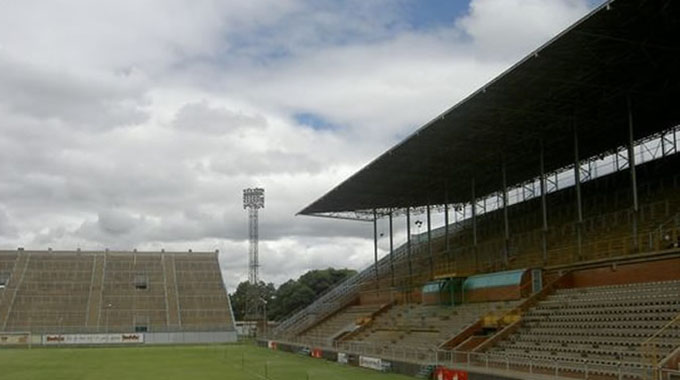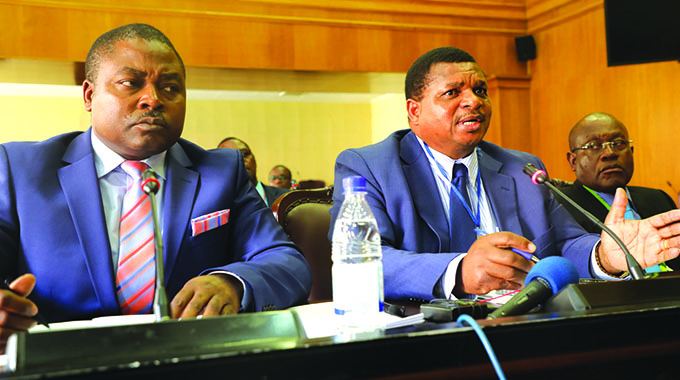City councillors blew US$10m Rufaro deal

Robson Sharuko Senior Sports Editor
HARARE City Councillors blew a golden chance to tap into the commercial value of Rufaro, which could have changed the face of the stadium, when they rejected a US$10 million offer dangled by Savanna Tobacco for the company to acquire the naming rights of the Mbare stadium seven years ago.
The landmark deal could have provided a template for such commercial partnerships in the country and possibly save the spiritual home of domestic football from the decay which has seen it being barred from hosting international football matches.
The collapse of the negotiations also provides a graphic illustration of how sports business in this country is still stuck in the Stone Age.
The local cigarette manufacturing company, which then had a huge stake in domestic football through their association with Dynamos, proposed a twinning arrangement with the City of Harare that would see the firm pump in US$10 million into the council’s flagship football ground.
As part of the deal, the company — which wanted Rufaro to be renamed Pacific Stadium after one of its cigarettes brands — would also renovate the stadium by installing bucket seats, an electronic scoreboard, the media tribune, parking bays, install internet connectivity and also redo the ground’s pre-cast security wall.
Savanna Tobacco had proposed a 10-year lease for the marriage.
“Fans would be able to purchase their tickets in advance online, via mobile money, and when one gets to the turnstiles and swipes either his phone or ticket to gain access,’’ the company said in their proposal which was contained in council documents which were revealed to The Herald.
“Comfortable numbered seats, which are categorised depending on the seating area, would be installed.
“An electronic scoreboard to relay time, team sheets, scoreline, minutes played or extended time would be erected.’’
The company also wanted to install a public address system, and provide free wireless Internet access for fans, at the stadium while, as part of the proposal, the City of Harare was set to get US$100 000, annually, in naming rights, from the deal.
Minutes of the City of Harare business committee meeting of January 30, 2014, showed the company also wanted to invest US$100 000 in drafting a sustainable business plan for the stadium to make it a commercially viable entity.
Savanna Tobacco representatives told councillors the upgraded stadium would have an enclosed, and secure parking area, with boom gates being placed at the entrance and exit points and they were so desperate for the marriage they even wanted it sealed before the start of the 2014 domestic Premiership season.
However, the councillors were concerned about replacing the name Rufaro with Pacific, arguing that the identity of the stadium was embedded in the public and an iconic name for the people of Harare and the country’s entire football community.
Any proposed change of name, said the councillors, would have to include Rufaro as part of the stadium’s identity and the city fathers also recommended that there be further consultations with their stakeholders before any agreement was reached.
The then Town Clerk, Tendai Mahachi, and the director of housing and community services were then mandated to continue negotiations with Savanna Tobacco and then report back to the councillors who noted benefits could be accrued by the city from the proposal.
Since then, sources have revealed that come of the councillors were more concerned about what they could personally get, from the deal, than its potential benefits for the capital, in particular, and the country’s football community, in general.
The City of Harare have struggled to maintain Rufaro, despite taking 20 percent of gross gate-takings from matches played at the stadium, and a multi-million dollar facelift of the stadium, which was done recently, has been raising eyebrows.
There is concern that most of the money, which was supposed to be invested into the renovations of the stadium, ended up elsewhere because the stadium, when it was reopened after the facelift, looked to be in worse shape than before the surgery was conducted.
The proposed Savanna Tobacco deal was a photocopy of the one which prophet Walter Magaya tabled to the Chitungwiza Town Council, three years ago, to invest into Chibuku Stadium and give it a facelift.
He wanted his Premiership side, Yadah Stars, to use Chibuku as their home ground and wanted Chitungwiza Town Council to give them a lease to renovate the stadium.
‘‘The terms of agreement that we were seeking was not what the Chitungwiza officials were prepared to offer us and, given the investment that we had earmarked for the stadium, we felt that we were not being given a fair deal,’’ he said.
‘‘We were ready to invest a lot into the stadium’s facelift and, for me, personally, it would have been a good homecoming because I’m from Chitungwiza and I have always had this special attachment with the town.
‘‘But, it’s a two-way process and one also needs to look into issues like what those who own the stadium are giving in return and that was the sticking point.’’
Three years later, the condition of Chibuku Stadium has even worsened with pictures, which were taken by this newspaper in our Fix Our Grounds campaign, confirming just that.
This week, former Premier Soccer League fixtures secretary, Beadle Musa Gwasira, sparked debate when he said Zimbabwe should adopt a similar model to the South Africans by tapping into the lucrative business of giving stadiums to commercial partners, for naming rights, with both the central and local government deriving a value from the partnerships.
Gwasira believes the management of the country’s major stadiums, like the ones in the Gauteng area of Johannesburg, should also be invested in the hands of independent contractors who can come up with ways of extracting value from their management of the facilities.
‘‘Once you do that, you free the local government from having to worry about the costs of maintaining the stadium, which are huge, and the commercial partner, whose name is carried by the stadium, also pours in a significant chunk into the project which then produces a win-win situation,’’ said Gwasira, who once owned Premiership side Lengthens, and was a Harare City Councillor.
‘‘I think, one of the solutions to all this is to adopt what others are doing elsewhere and there is a reason why the City of Johannesburg, which is one of the richest metropolitan areas in Africa, finds it reasonable to get a naming rights partner, in this case FNB, for the biggest stadium in South Africa.’’









Comments